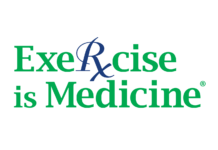
What do our Dolphin Research Center friends (our underwater mammal friends, that is) have that we don’t?
I’ll let you read the title of the article again … that’s right, a high Omega Index. Dolphins have an Omega Index score roughly eight times higher than the national average and four times higher than the recommended range. After reading this article, not only might you start asking for sardines on your pizza, you are also going to understand how and why omegas are a cornerstone for optimal health.
The Omega Index is not the name of a fraternity or sorority – although if it was, I would have maybe considered joining this one. Rather, it is a measure that assesses the balance of omega-3 and omega-6 fatty acids in the body. Understanding this index and its implications can pave the way toward improved heart health, cognitive function and overall well-being.
The Omega Index represents the proportion of two essential fatty acids — eicosapentaenoic acid (EPA) and docosahexaenoic acid (DHA) — in red blood cell membranes, relative to other fatty acids like omega-6. A balanced Omega Index is associated with a lower risk of cardiovascular disease, reduced inflammation, and enhanced cognitive function.
Recent studies suggest that the national average Omega Index falls below the optimal range. According to research published in the Journal of Clinical Lipidology, the average Omega Index in the United States is approximately 4%, far from the recommended range of 8-12%.
Stop … pop quiz. I told you in the beginning that dolphins have eight times the amount than the national average and roughly four times higher than the recommended range, so with that, what is a dolphin’s approximate Omega Index? If you guessed 32%, you are correct. It makes sense, considering the all-fish diet of our flippered friends is rich in healthy omega-3 fatty acids.
Striving to achieve an optimal Omega Index is essential for maintaining good health. But before starting any new omega habits, I highly recommend speaking with your physician for two reasons. One, get a baseline blood work panel done to know what your current Omega Index is – after all, you may be part dolphin and don’t need to make any changes. Two, have your physician recommend a dose to start with if you choose to supplement. And remember, not all supplements are created equal, so feel free to reach out to me to hear more about what to look for in an omega supplement.
Stay tuned to the next article, which will be a deep dive into how to improve your Omega Index score and what a high-scoring index means for your health.
Reference:
Harris, W. S., & von Schacky, C. (2004). The omega-3 index: a new risk factor for death from coronary heart disease?. Preventive medicine, 39(1), 212-220.

























